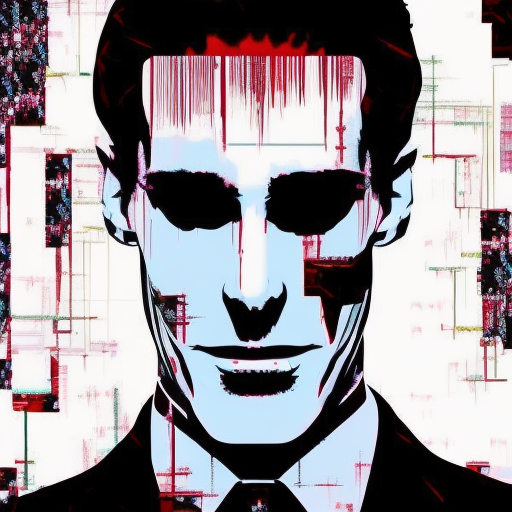One-line summary:
American Psycho is a dark and satirical novel that delves into the mind of a wealthy investment banker turned serial killer in 1980s New York City.
The World of Excess and Obsession
American Psycho, written by Bret Easton Ellis, takes readers on a disturbing journey into the mind of Patrick Bateman, a wealthy and successful investment banker living in Manhattan during the 1980s. At first glance, Bateman appears to be just like any other young professional in the city, with his designer suits, expensive tastes, and obsession with physical appearance. However, beneath this façade lies a deeply disturbed individual who indulges in sadistic acts of violence and murder.
As the novel progresses, Ellis paints a vivid picture of the excessive and materialistic world that Bateman inhabits. The characters in the book are obsessed with their outward appearances, constantly comparing designer labels and striving for social status. The narrative is filled with detailed descriptions of luxury brands, high-end restaurants, and exclusive clubs, highlighting the shallow and superficial nature of Bateman’s social circle.
A Descent into Madness
As the story unfolds, Bateman’s mental state deteriorates, blurring the lines between reality and fantasy. He becomes increasingly consumed by his violent urges, meticulously planning and executing brutal murders. However, the most chilling aspect of Bateman’s character is his ability to seamlessly blend into society, as his friends and colleagues remain oblivious to his true nature.
Throughout the novel, Ellis explores the themes of identity, alienation, and the dehumanizing effects of consumerism. Bateman’s obsession with material possessions and his constant need for validation reflect the emptiness and moral decay of the society he inhabits. The author also delves into the concept of the American Dream, exposing its dark underbelly and the lengths individuals will go to achieve success and social acceptance.
A Critique of Society
American Psycho serves as a scathing critique of the excesses and superficiality of 1980s American society. Ellis uses Bateman’s violent acts as a metaphor for the moral bankruptcy and soullessness of the era. The novel exposes the dark side of capitalism, where greed and materialism reign supreme, and human life is reduced to a commodity.
The book also explores themes of misogyny and the objectification of women, as Bateman engages in graphic acts of violence against female victims. Ellis confronts the reader with the uncomfortable reality of a society that allows such atrocities to occur, highlighting the pervasive sexism and misogyny that still exist today.
Key Takeaways:
- American Psycho is a dark and satirical novel that delves into the mind of a wealthy investment banker turned serial killer in 1980s New York City.
- The novel explores themes of excess, obsession, and the dehumanizing effects of consumerism.
- It serves as a critique of 1980s American society, exposing the dark side of capitalism and the objectification of women.
“I had all the characteristics of a human being—flesh, blood, skin, hair—but my depersonalization was so intense, had gone so deep, that my normal ability to feel compassion had been eradicated.”
In conclusion, American Psycho is a chilling and thought-provoking novel that forces readers to confront the darkest aspects of human nature and the society in which we live. Through the character of Patrick Bateman, Bret Easton Ellis presents a scathing critique of 1980s America, exposing the hollowness and moral decay that lie beneath the surface of wealth and success. The novel serves as a stark reminder of the dangers of unchecked consumerism, the objectification of women, and the consequences of a society driven by excess and obsession.












